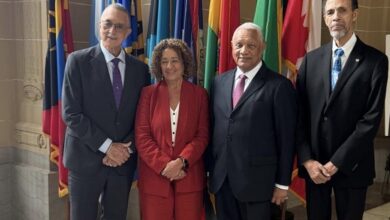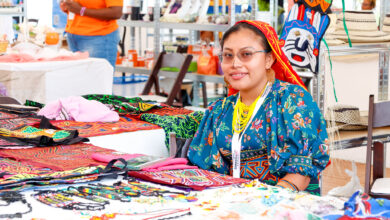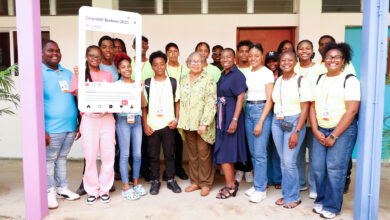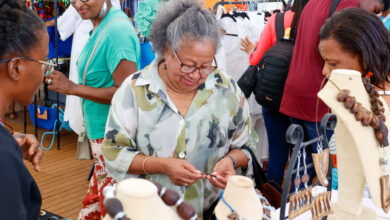(CARICOM Secretariat, Turkeyen, Greater Georgetown, Guyana) The Caribbean Community (CARICOM) Secretariat has presented Suriname and Haiti with Dutch and French translations of the 2010 Report on the situation of Caribbean youth.
The presentations were made at the CARICOM – UNASUR High Level Youth Exchange in Paramaribo, Suriname, on Thursday, 14 June, during the youth leaders’ interaction with the CARICOM Secretary-General Ambassador Irwin LaRocque.
The Report, titled Eye on the future investing in youth now for the Community tomorrow is the seminal work of the 15- member CARICOM Commission on Youth Development (CCYD) established by CARICOM Heads of Government in 2007 to conduct a full scale analysis in the situation of Caribbean youth and to make recommendations to empower them and improve their well-being.
The findings of that situational analysis were presented to CARICOM Heads of Government at a Special Summit on youth in January 2010; subsequently Heads of Government issued the Declaration of the Paramaribo on the future of youth the Caribbean Community in which they committed to devising appropriate measures to advance the youth agenda.
Ms Myrna Bernard, Officer in Charge of Human and Social Development at the CARICOM Secretariat, presented two copies of the Report in Dutch to Suriname’s Minister of Foreign Affairs Honourable Winston Lackin, who accepted on behalf of the Government of Suriname and two copies in French to Haiti’s Youth Ambassador Cindy Morquette who accepted on behalf of the Government of Haiti.
In making the presentations, Ms Bernard told delegates at the High Level Youth Exchange that the translations were done at the request of the former Secretary General of CARICOM, His Excellency, Sir Edwin Carrington.
The Report was translated into Dutch and French by the Caribbean Regional Information and Translation Institute, (CRITI).
The Suriname-based regional institution “plays a very important facilitating role in bring the various linguistic groups of the region closer and therefore aids the widening and deepening of integration processes,” Ms Bernard concluded.





